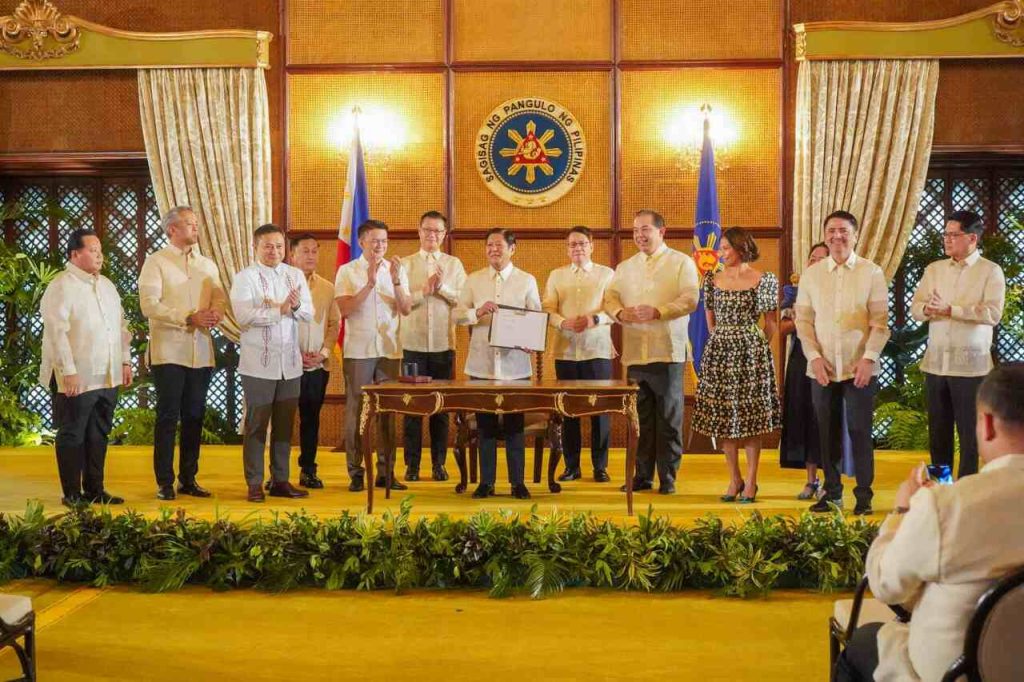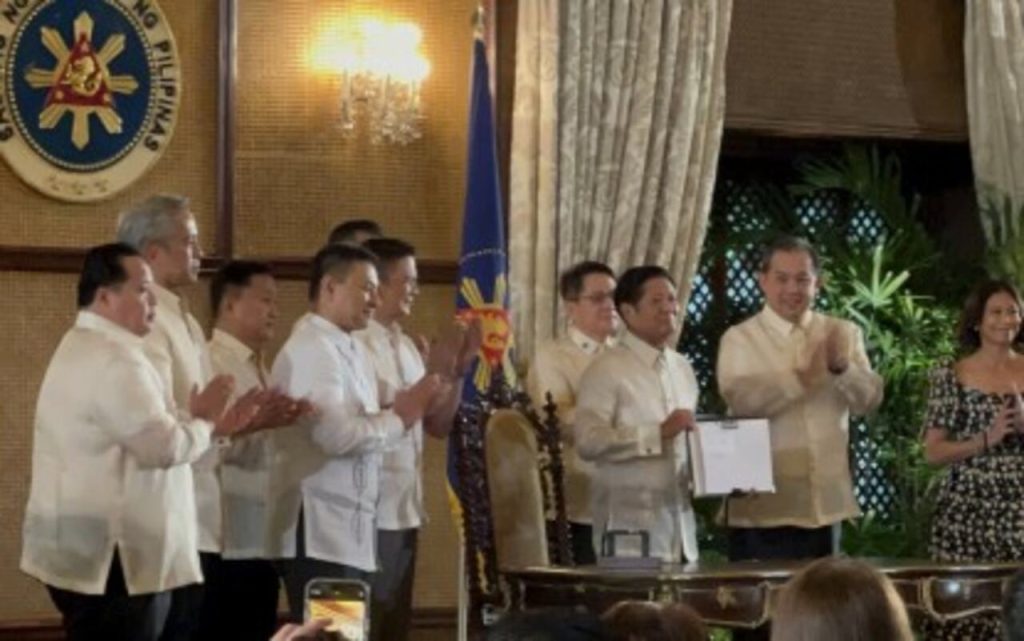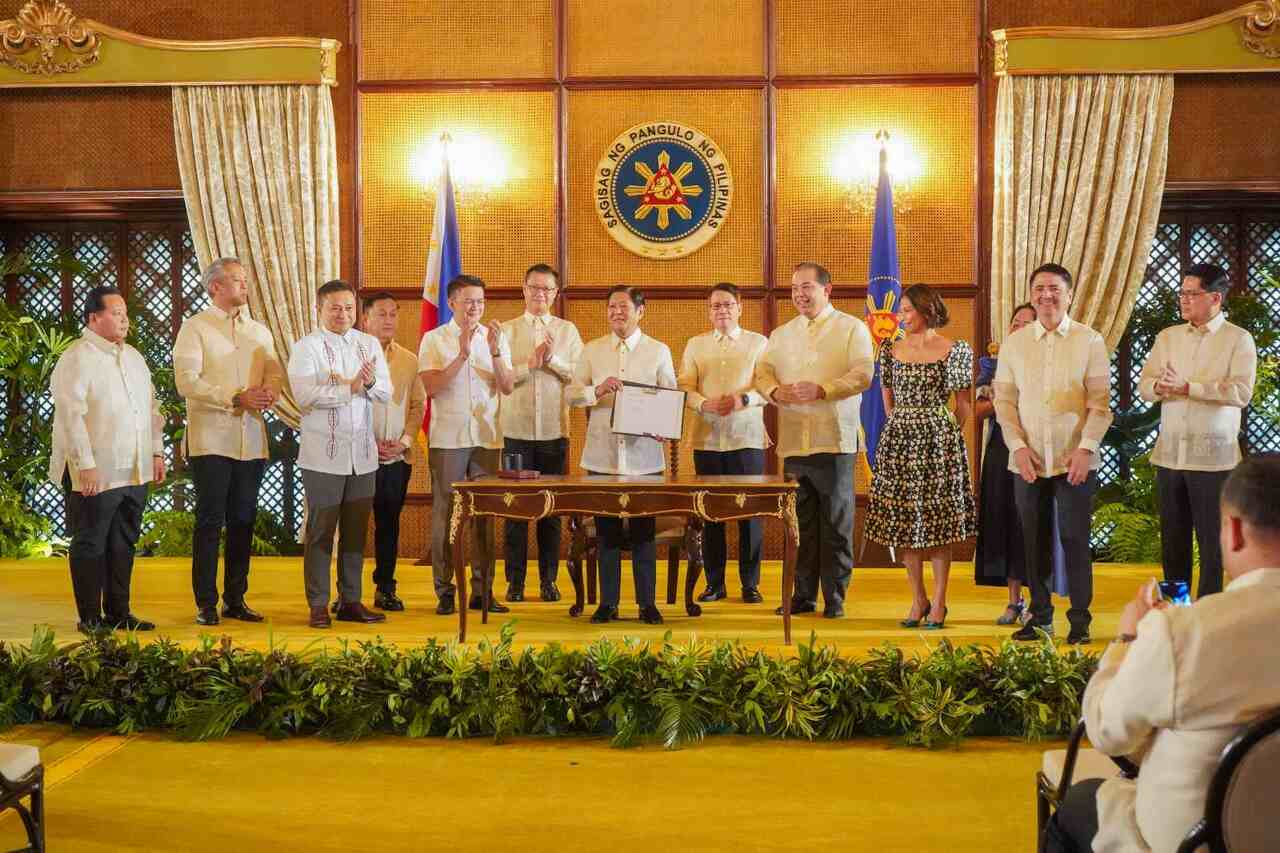President Ferdinand “Bongbong” Marcos Jr. has officially signed into law Republic Act No. 12028, known as the Academic Recovery and Accessible Learning (ARAL) Program Act. The newly enacted legislation aims to support the education system and address the significant learning gaps experienced by Filipino students, especially in critical subjects such as reading, mathematics, and science. The signing took place at the Ceremonial Hall of Malacañang Palace, marking a critical step in the government’s efforts to revamp the country’s education system.

The ARAL Law was passed in response to a growing learning crisis that has plagued the Philippines for years. According to data from the 2018 Program for International Student Assessment (PISA), 75% of Filipino students were found to be performing below minimum proficiency levels in key subjects. This alarming trend continues, reflecting the urgent need for intervention to improve the quality of education nationwide.
Learning Gaps Addressed by ARAL Program
President Marcos highlighted the importance of the ARAL Law as a means to bridge the learning gap exacerbated by the COVID-19 pandemic. He acknowledged that Filipino students have been lagging behind global standards, especially in fundamental subjects that are crucial for their future success. The ARAL Program is designed to provide struggling learners with structured tutorials aimed at improving their proficiency in these areas.

The program will be spearheaded by the Department of Education (DepEd) and will offer free tutorials conducted by teachers, para-teachers, and pre-service teachers from accredited Teacher Education Institutions. The primary focus of the ARAL Program will be on enhancing students’ competencies in reading and mathematics for Grades 1 to 10, as well as science for Grades 3 to 10. In addition, Kindergarten students will receive foundational lessons aimed at improving literacy and numeracy skills.
Flexible Learning Options and Comprehensive Evaluation
To ensure accessibility and flexibility, the ARAL Program will offer multiple modes of instruction. Students can choose between face-to-face tutorials, online sessions, or a blended learning approach depending on their needs and preferences. This flexibility is intended to cater to the varying circumstances of learners across the country, whether in urban or remote areas.
A key feature of the ARAL Law is its emphasis on accountability and impact assessment. An annual evaluation will be conducted to measure the program’s effectiveness, and a detailed report will be submitted to Congress six months after each school year. This ensures that the program remains on track in meeting its objectives and that necessary adjustments can be made based on data-driven insights.
Support from Key Lawmakers and Education Leaders
DepEd Secretary Sonny Angara expressed his gratitude to President Marcos for signing the ARAL Law, noting that it is a crucial intervention in addressing the challenges faced by the country’s education system. “This law demonstrates our commitment to providing every Filipino student with the opportunity to succeed, especially those who have fallen behind during the pandemic,” Angara said.
Senators Francis “Chiz” Escudero and Sherwin Gatchalian, who were instrumental in pushing the ARAL Law through Congress, also praised the legislation. Escudero emphasized that the ARAL Program will help address long-standing issues of poor literacy and numeracy among Filipino students. He added, “This program is essential in laying the foundation for productive citizens who can contribute to the nation’s growth.”
Gatchalian, who authored and sponsored the bill in the Senate, echoed these sentiments, stating that the ARAL Law will enhance students’ readiness for higher education and future employment. “This law will not only address learning loss but will also empower our students to achieve their full potential,” he said.
Government and Private Sector Collaboration
To support the ARAL Program’s nationwide rollout, the government plans to partner with telecommunications providers to offer free access to DepEd’s learning platforms. These include web-based applications and digital libraries that will serve as additional resources for students and teachers. The law also encourages donations and partnerships from the private sector, offering tax incentives to those who contribute to the program’s success.
In line with this, a portion of airtime on broadcasting networks will be allocated for tutorial videos that reinforce the core competencies outlined by DepEd. This initiative ensures that students without consistent access to the internet can still benefit from the program’s resources.
Call to Action for Stakeholders
President Marcos urged all stakeholders, including teachers, parents, local government units (LGUs), and national agencies, to work together in implementing the ARAL Program. He called on teachers to approach students with compassion and understanding, while encouraging parents to maintain open communication with tutors to track their children’s progress.
LGUs have also been tasked with creating safe learning environments for face-to-face tutorials and promoting the program within their communities. National agencies will be responsible for ensuring that the necessary rules and regulations are in place to facilitate the smooth execution of the program.
ARAL Law: A Hopeful Step Forward
The ARAL Law represents a vital step in addressing the learning challenges that have long hindered Filipino students. By focusing on essential skills, offering flexible learning options, and ensuring accountability through regular evaluations, the program aims to bring the country closer to achieving its educational goals.
Video: Marcos Inks Aral Law to Address Learning Gaps
Watch this video from ANC 24/7 and learn more about the key features of the Academic Recovery and Accessible Learning (ARAL) Law, signed by President Marcos on October 18, 2024 to improve the quality of education in the Philippines:
